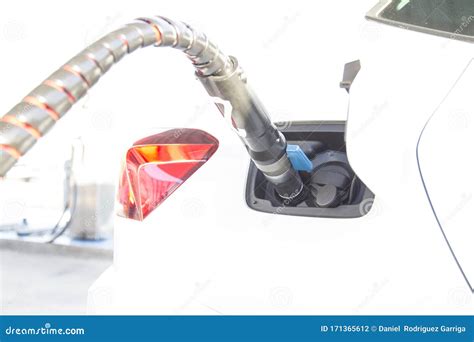Gas Tank Cleaning: The Eco-Friendly Alternative
Maintaining a clean fuel system is crucial for optimal engine performance and longevity. A dirty gas tank can lead to clogged fuel injectors, reduced fuel efficiency, and even engine damage. Traditional gas tank cleaning methods often involve harsh chemicals that are detrimental to the environment. Fortunately, eco-friendly alternatives are emerging, offering a safer and more sustainable approach to keeping your fuel system pristine. This article explores these options and provides valuable insights into maintaining a clean fuel tank while minimizing your environmental impact.
What are the Environmental Concerns of Traditional Gas Tank Cleaning?
Traditional methods frequently rely on strong solvents and detergents that can contaminate soil and water sources if improperly disposed of. These chemicals can also harm wildlife and contribute to air pollution during the cleaning process. The use of these harsh chemicals poses a significant risk to both human health and the environment.
Eco-Friendly Gas Tank Cleaning Methods: A Deep Dive
Several eco-friendly methods are available to clean your gas tank, offering effective cleaning without the environmental hazards. These include:
1. Fuel System Cleaners: The Biodegradable Option
Several fuel system cleaners on the market are formulated with biodegradable ingredients, minimizing their environmental impact. These additives are designed to dissolve deposits and varnish within the fuel system, improving engine performance and efficiency. Look for products specifically labeled as biodegradable and environmentally friendly. Always follow the manufacturer's instructions for proper usage.
2. Ethanol Fuel: A Natural Cleaning Agent (with Caveats)
Ethanol, a renewable fuel often blended with gasoline, possesses natural cleaning properties. While it doesn't specifically clean the tank itself, ethanol can help prevent the build-up of deposits in the fuel system over time. However, it's important to note that high ethanol blends can also damage certain fuel system components in older vehicles. Check your vehicle's owner's manual for compatibility.
3. Regular Fuel Filter Replacement: Prevention is Key
Regularly replacing your fuel filter is a proactive approach to maintaining a cleaner fuel system. The filter traps contaminants before they reach the engine, preventing the buildup of harmful deposits in your gas tank and fuel lines. This simple maintenance task helps reduce the need for more aggressive cleaning methods.
4. Preventative Measures: Avoiding Contamination
Preventing contamination is the best approach. Avoiding the use of substandard or contaminated fuel is paramount. Refueling at reputable stations and ensuring your fuel cap is securely sealed will significantly reduce the chance of dirt and debris entering the fuel tank.
How Often Should You Clean Your Gas Tank?
There's no single definitive answer to this question. The frequency depends on several factors, including the quality of the fuel you use, your driving habits, and the age of your vehicle. However, a good rule of thumb is to use a fuel system cleaner every 3,000-5,000 miles, or as recommended by your vehicle's manufacturer. Regular fuel filter replacements (typically every 12,000-15,000 miles) also contribute to a clean fuel system.
Signs Your Gas Tank Needs Cleaning
Several signs indicate a potential need for gas tank cleaning or fuel system maintenance:
- Reduced fuel efficiency: Noticeably lower miles per gallon could suggest clogged fuel injectors.
- Rough idling or stalling: Dirty fuel can hinder proper engine combustion.
- Hesitation during acceleration: This indicates a problem with fuel delivery.
- Engine misfires: A consequence of insufficient fuel supply.
Can I Clean My Gas Tank Myself?
While some minor cleaning can be achieved with fuel system cleaners, attempting to physically clean your gas tank yourself is generally not recommended unless you're experienced in automotive repair. Improper handling can lead to fuel leaks, system damage, and personal injury.
Frequently Asked Questions
What are the benefits of using biodegradable fuel system cleaners?
Biodegradable fuel system cleaners offer the advantage of effectively cleaning your fuel system without introducing harmful chemicals into the environment. They are a more sustainable and eco-conscious alternative to traditional, harsh cleaners.
Can I use regular gasoline to clean my gas tank?
No, regular gasoline is not an effective cleaner for a gas tank. It will not remove accumulated deposits. Using fuel additives specifically designed for cleaning is necessary.
How can I tell if my fuel filter needs replacing?
While you cannot visually inspect the fuel filter without removal, reduced fuel efficiency, rough engine operation, and trouble starting the vehicle could be signs of a clogged fuel filter. Refer to your owner's manual for the recommended replacement intervals.
By utilizing eco-friendly alternatives and employing preventative measures, you can ensure a clean fuel system while minimizing your environmental impact. Remember to consult your vehicle’s owner's manual for specific recommendations and always prioritize safety.

